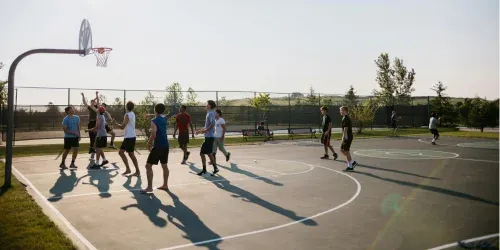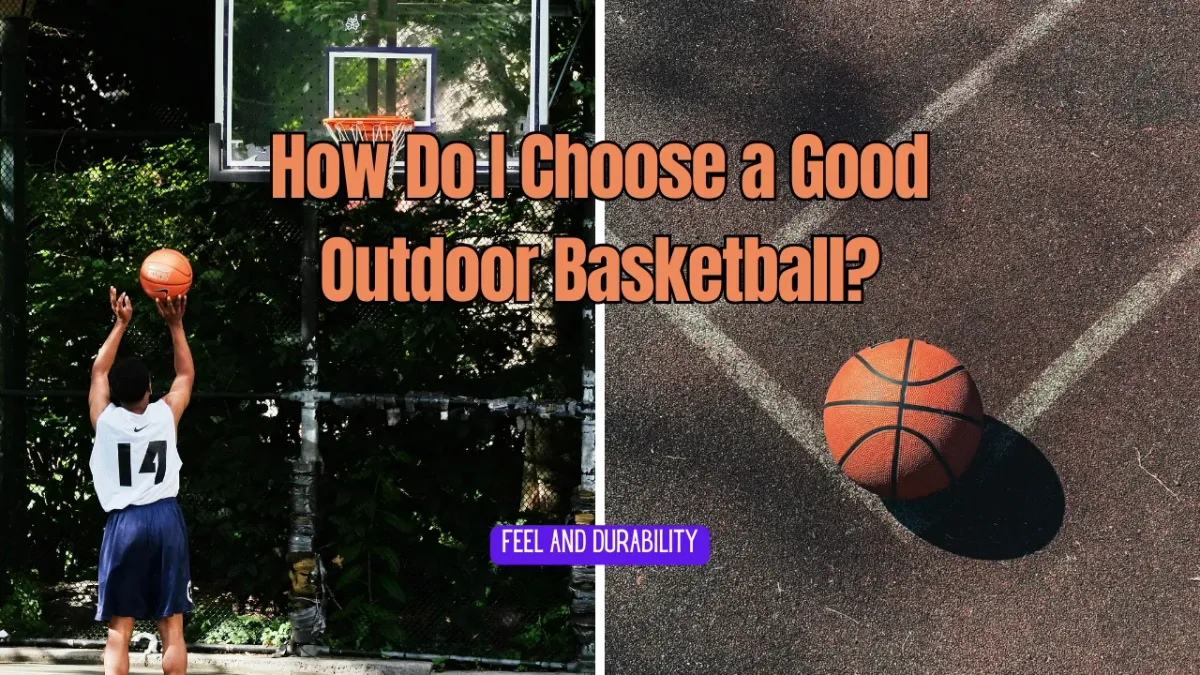Basketball enthusiasts and facility managers often grapple with the decision of choosing the best surface for their basketball courts. Whether it's for a community park, a school, or a private residence, the choice between a concrete court and an asphalt (blacktop) court is a significant one. This article will delve into the pros and cons of each material to help you make an informed decision.
Key Takeaways:
- Understand the differences between concrete and asphalt basketball courts in terms of durability, performance, and maintenance.
- Learn about the impact of court surface on players' safety and the game experience.
- Discover which type of court may be more cost-effective in the long run.

Durability and Longevity
When it comes to outdoor basketball courts, durability is a top concern. Concrete courts are known for their sturdy foundation and resistance to wear and tear. They can withstand harsh weather conditions and heavy use without showing significant signs of cracking or damage. On the other hand, asphalt courts, while durable, may require more regular maintenance as they can soften under extreme heat and may develop cracks over time.
Performance and Safety
The performance of the basketball court surface is extremely important for players. Concrete courts offer excellent traction and a smooth surface, which is crucial for quick movements and maintaining control. Asphalt courts also provide good traction, but the risk of serious injuries from falls may be slightly higher due to the harder surface. Both surfaces offer good shock absorption, but concrete might have a slight edge in reducing the risk of leg and knee injuries.
Maintenance and Upkeep
Maintenance costs are a critical factor in the decision-making process. Asphalt courts may need more frequent resurfacing and repair to address cracks and wear. Concrete courts, while initially more expensive to construct, often boast lower long-term maintenance costs due to their durability. Regular maintenance for both types of courts is essential to ensure a safe and playable surface.
Cost Considerations
When constructing a new basketball court, budget constraints play a significant role. Asphalt courts are generally less expensive to install than concrete courts. However, the concrete court's longevity and lower maintenance requirements may make it more cost-effective over time. It's important to consider both the upfront costs and the long-term investment when choosing the best surface for your basketball court.
Impact on Game Play
The court surface can significantly affect the quality of play. Concrete courts provide a consistent bounce and are less likely to have dead spots compared to asphalt. This consistency is crucial for basketball players who rely on precise dribbling and shooting. Both surfaces can be used for other sports, such as tennis, but the smooth surface of concrete is often preferred.
Environmental Factors
Outdoor basketball courts are subject to the elements, and the choice of material can influence how the court weathers over time. Concrete courts can reflect sunlight, reducing the surface temperature and making it more comfortable for players during hot days. Asphalt absorbs heat, which can make the surface hot to the touch and potentially lead to faster degradation.
Aesthetic Appeal
The appearance of the basketball court can also be a deciding factor. Concrete offers a variety of finishing options, including painting and texturing, which can enhance the visual appeal of the court. Asphalt has a more uniform look, which may be preferable for those seeking a traditional basketball court appearance.
Community and Commercial Use
For schools, parks, and commercial facilities, the choice between concrete and asphalt may come down to usage patterns and community needs. Concrete courts can handle a high volume of players and activities, making them suitable for busy community spaces. Asphalt may be a more practical option for smaller or private courts that don't experience constant use.

Summary
Choosing between a concrete or blacktop basketball court involves considering factors such as durability, performance, safety, maintenance, cost, and environmental impact. Concrete courts offer a sturdy foundation, excellent traction, and lower maintenance costs, making them a potentially more cost-effective option in the long run. Asphalt courts are initially less expensive and provide good performance but may require more upkeep. Ultimately, the best surface for your basketball court will depend on your specific needs, budget, and preferences.

FAQS
Which type of basketball court is more durable?
Concrete basketball courts are generally more durable than asphalt courts. They are better suited to withstand harsh weather conditions and heavy use without significant cracking or damage.
Are concrete courts safer than asphalt courts?
Both concrete and asphalt courts offer good traction and shock absorption. However, concrete courts may have a slight advantage in reducing the risk of leg and knee injuries due to their smoother surface and excellent traction.
How often do asphalt basketball courts need maintenance?
Asphalt basketball courts may require more frequent maintenance, including resurfacing and crack repair, to maintain a safe and playable surface. The frequency of maintenance depends on the level of use and environmental conditions.
Related articles:











